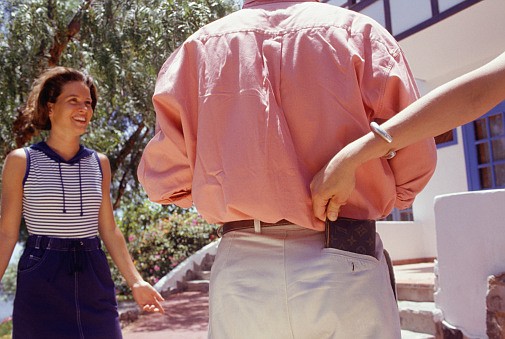Top 10 overseas travel scams to watch for and how to avoid them
February 7, 2012 at 6:00 a.m.
Finally being able to take all of those overseas adventure travel dreams of yours seriously is one of the great benefits of reaching retirement age. Of course, there are a lot of people out there who are more than happy to take you for a ride, and not in a taxicab. Here are ten of the most common scams, cons and tricks to look out for during your overseas travel adventure.
The Free Trip
Marketers like to pull this simple trick, calling you on the phone to tell you that you've won a free trip or a discounted vacation to some tropical paradise. In truth, these trips are usually overpriced, not what the marketer is offering or else the "marketer" is simply trying to steal your credit card information. Never trust the free trip.
The Tea Scam
This scam is a simple one, and that's why it works on so many travelers. You are approached by a young man or woman or couple who claim they want to improve their English with a friendly chat. Then they offer to take you out for tea as thanks. When you've had enough, they disappear and leave you with a hundred dollar bill that they're earning a commission on. Politely decline.
Pickpockets
The good old fashioned pickpocket is still one of the hottest scams overseas, especially in Turkey's booming tourism areas. Always keep your stuff protected overseas.
Ancient Artifacts
You're likely to bump into some Chinese, Egyptian or African vendors trying to sell you ancient artifacts, pieces of King Tut's tomb. More likely it's a brick from their shed that they drew some vaguely heiroglyphic looking symbols on. Just say no.
Imaginary Dollars
A salesman offers you a beautiful handmade leather messenger bag or some other item for only five dollars. You get ready to pay with a fiver and he says "Wait wait, I meant five Mayan dollars!" or some other non-existent currency, and of course, the exchange rate is something like five to one. Ask what currency this is before making any commitment.
The Misleading Brochure
With tourism on the decline, some hotels and travel agencies create really false brochures. Check out sites like Tripadvisor to see if that ocean view can only be seen from the roof and the nearby 5-star restaurant is actually a McDonalds.
The Exchange Rate
In most countries, anybody who exchanges one currency for another is licensed by the government. Since some travelers don't know that, some locals make a nice profit offering "good exchange rates" that leave you a little short. Stick to banks and licensed exchangers.
The Cheap Call
You go to a payphone and find that you don't have any coins. No problem, there's a credit card slider. Only some travelers have reported paying 10, 20, or 40 dollars for one minute phone calls. If you can't get clear info on how much the call costs, don't bother.
Unlicensed Drivers
Try to book taxis and limos through real agencies. A lot of unlicensed drivers like to hang around airports and pick people up, then drive them for dozens and dozens of miles out of the way to boost their fare.
Conveyor Belt Scam
You put your stuff on the conveyor belt at airport security, and now the guy in front of you just keeps triggering the metal detector. How much change does he have in those pockets? Meanwhile, his partner is making off with your laptop and your carry-on bag. Don't put your stuff down until you're going through yourself.
Free Internet
Good old fashioned identity theft: Free internet is often a method that scammers use to spy on your personal information on an unsecured line. Trust the hotel's internet, but be wary of anyone else's. Secure your computer properly.
Content Provided by Spot55.com





